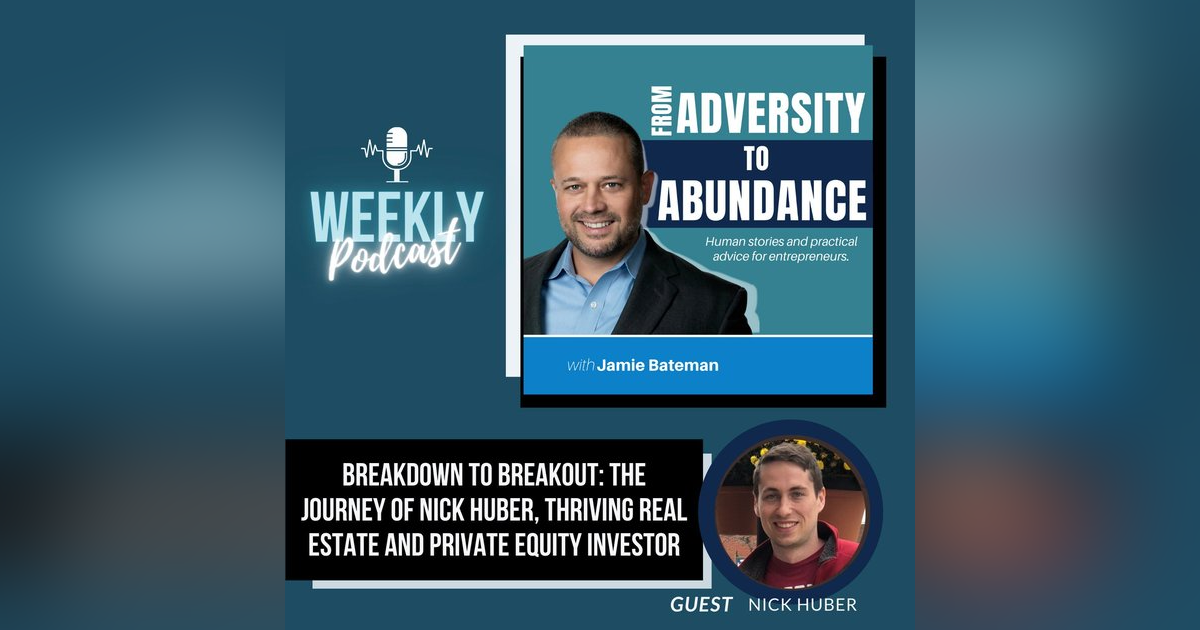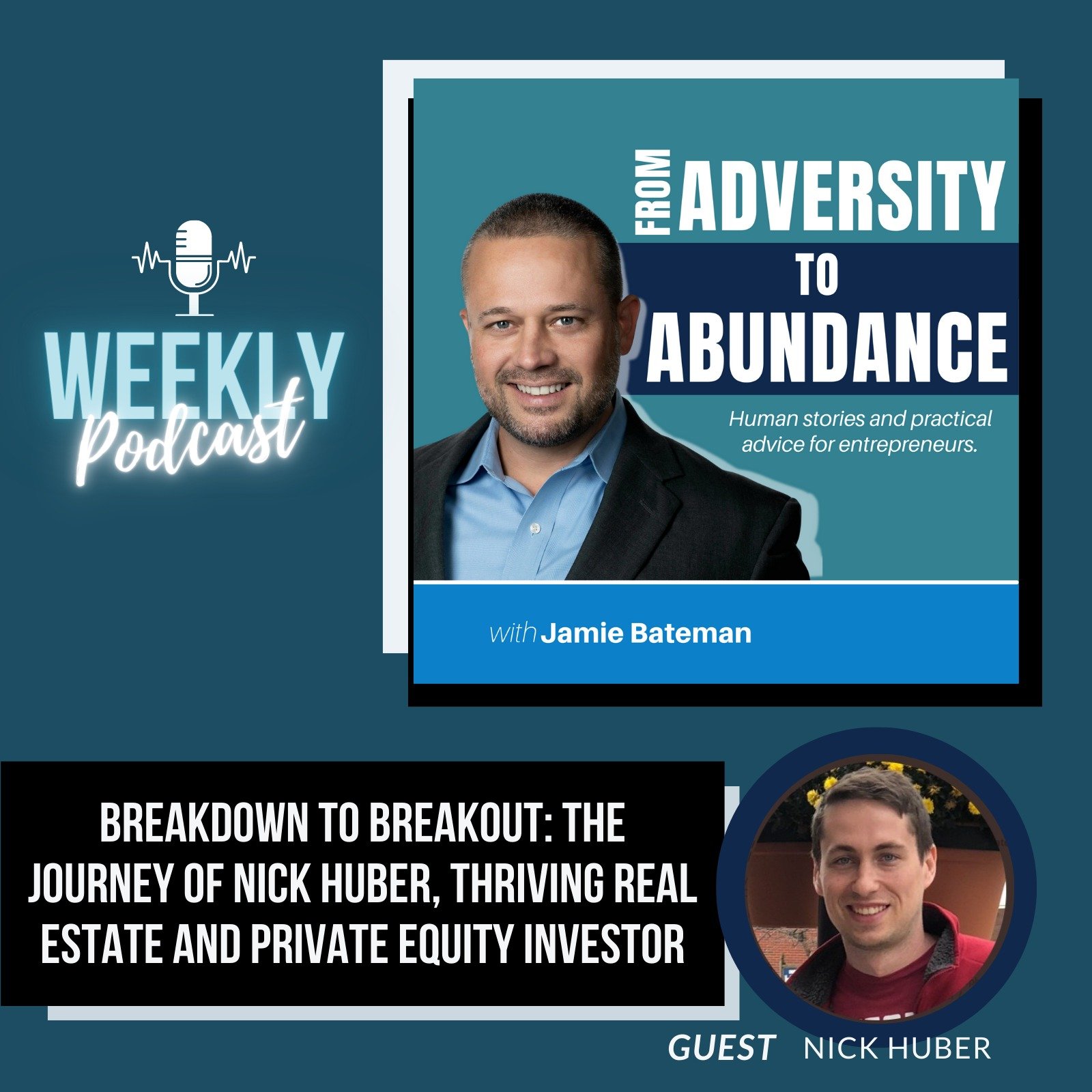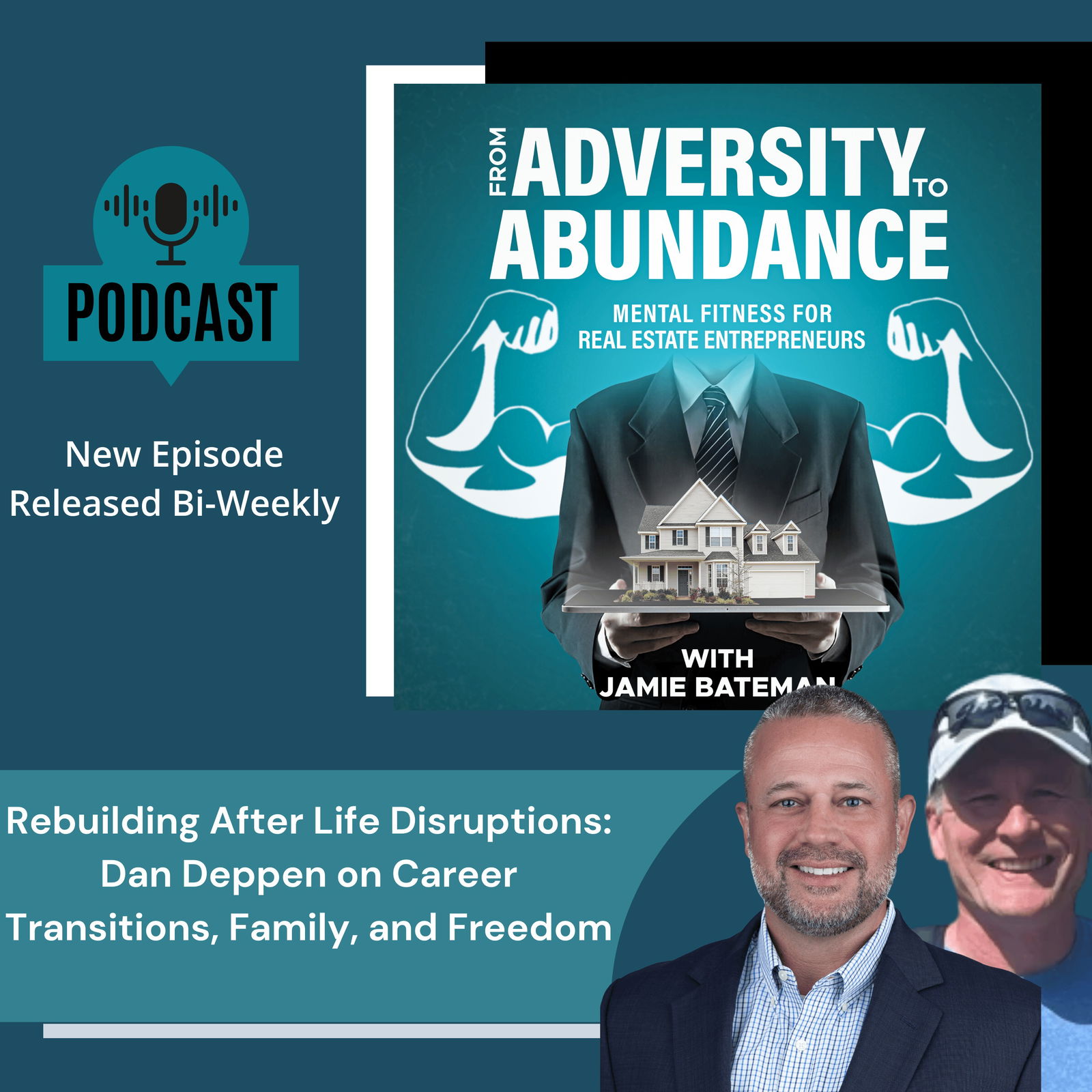Breakdown to Breakout: The Journey of Nick Huber, Thriving Real Estate and Private Equity Investor


Have you ever wondered how a series of unfortunate events and failures could lead someone to their greatest success? Meet Nick Huber, a seasoned entrepreneur, investor, and the genius behind the impressive growth of a small moving and storage company that expanded into twelve states and handled 50,000 items per year. Currently wielding a personal brand that sees 90 million eyeballs across various platforms, Nick is an expert in building teams and capitalizing on talent. Get ready to be inspired as we explore the importance of thinking logically and evaluating ROI in business decisions. Stay tuned to discover the pivotal moment that changed everything for Nick, and how you can apply his newfound perspective to your own entrepreneurial journey.
“Just because you see them winning doesn't mean its stress-free, doesn't mean it's easy, and doesn't mean they're not having a ton of uncomfortable conversations and doing hard things all the time. You get better at business, the stakes go up.”
Books and Resources
Entreleadership - 20 Years of Practical Business Wisdom From the Trenches
The Goal: A Process of Ongoing Improvement - 30th Anniversary Edition
Connect with Nick Huber:
BOOKLIST: https://sweatystartup.ck.page/b3c17cfb83
NEWSLETTER: https://sweatystartup.com/
BUSINESS BROKERAGE: https://nickhuber.com/
SELF-STORAGE: https://boltstorage.com/
BOLD SEO: https://boldseo.com/
INSURANCE: https://titanrisk.com/
RECRUITING: https://recruitjet.com/
LANDING PAGE / WEB DEVELOPMENT: https://webrun.com/
OVERSEAS STAFFING: https://supportshepherd.com/
DEBT AND EQUITY: https://bluekeycapital.com/
TAX CREDIT: https://taxcredithunter.com/
COST SEGREGATION: https://recostseg.com/
PERFORMANCE MARKETING: https://adrhino.com/
PEST CONTROL: https://spidexx.com/
TWITTER: https://twitter.com/sweatystartup
FACEBOOK: https://www.facebook.com/sweatystartup
LINKEDIN: https://www.linkedin.com/in/sweatystartup/
Haven Financial:
https://www.myfinancialhaven.com/jamiebateman/
ATTENTION:
Unlock the secrets to a transformative life with “From Adversity to Abundance: Inspiring stories of Mental, Physical and Financial Transformation”. Buy your copy now and embark on a journey from challenges to triumphs!
AMAZON: https://www.amazon.com/dp/B0CGTWJY1D?ref_=pe_3052080_397514860
Connect with us
WEBSITE: https://www.adversity2abundance.com
Leave us a rating or review: https://www.adversity2abundance.com/reviews/new/ or here
Got comments, feedback or suggestions? We’d love to hear it! https://www.adversity2abundance.com/contact/
Follow From Adversity to Abundance Podcast
FACEBOOK: https://www.facebook.com/profile.php?id=100089126144055
INSTAGRAM: https://www.instagram.com/adversitytoabundancepodcast/
LINKEDIN: https://www.linkedin.com/company/89949391/admin/feed/posts/
YOUTUBE: https://www.youtube.com/@FromAdversity2AbundancePodcast
Connect with Jamie
BOOK: From Adversity to Abundance: Inspiring Stories of Mental, Physical, and Financial Transformation
LINKEDIN: https://www.linkedin.com/in/jamie-bateman-5359a811/
TWITTER: https://twitter.com/batemanjames





